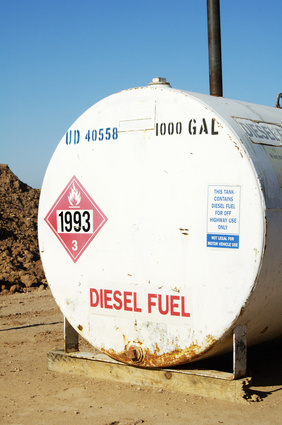
Vehicles and equipment that run on diesel fuel can be more difficult to start in cold weather. Diesel fuel gels at very cold temperatures. Water in the fuel can freeze, blocking fuel lines.
Diesel turns to a gel-like consistency at temperatures around 0 degrees Fahrenheit. Paraffin in the diesel forms wax crystals when the temperatures drop below 15 degrees Fahrenheit. As it gets colder, these wax crystals turn to gel. This thicker substance cannot pass the fuel filter, so the engine may run intermittently, or may not start at all.
Water in the fuel can freeze at temperatures below 32 degrees Fahrenheit, blocking fuel lines. Keep the fuel tank full to prevent condensation from forming inside the tank and lessen the chances of water getting in the fuel line.
Use diesel with additives that prevent gelling. In cold climates, this is likely the only diesel fuel you can buy at the pump. You can also purchase additives. Parking your vehicle or equipment indoors, using a block heater or glow plugs, and maintaining your vehicle’s battery will make it easier to start a diesel engine in cold weather.